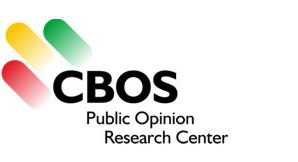08/2018
2018-03-23
Social Mood: Quarterly Summary
Indicators of social mood used in our research include evaluations of and forecasts for Poland’s economy and politics, respondents’ workplaces and their own household finances. In order to express the full dynamic of changes in social mood, this quarterly summary is presented in the form of mean assessments on a five-point scale from -2 to +2.
The beginning of 2018 brought a certain improvement in both evaluations and forecasts of the political situation, however, by March these had returned to the same level as at the end of the previous year. Mean assessments of the political situation are on the negative side, which indicates a slight dominance of dissatisfaction over satisfaction while, when it comes to forecasts, the balance of pessimism and optimism oscillates around the zero mark.
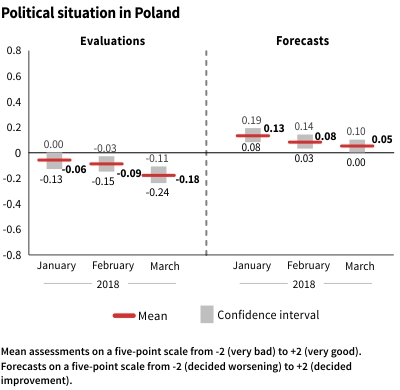
|
On the other hand, evaluations and forecasts of the economic situation have been on the plus side for many months. Additionally, this quarter has seen both record assessments and forecasts in this area, although towards the end of the quarter these became somewhat worse than at the beginning.
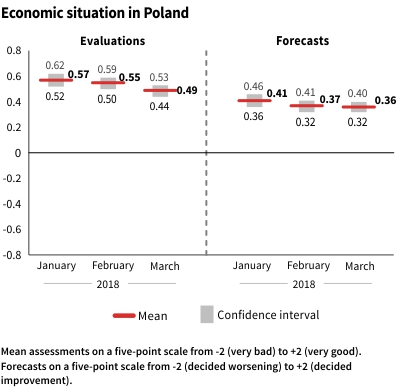
|
In the first quarter of 2018 both evaluations of and forecasts for the condition of respondents’ household finances have been on the plus side and somewhat higher than the 2017 average, although slight falls in March can be discerned here too. As usual, the assessments of the current state of household finances have been more positive than the forecasts (statistically significant differences).
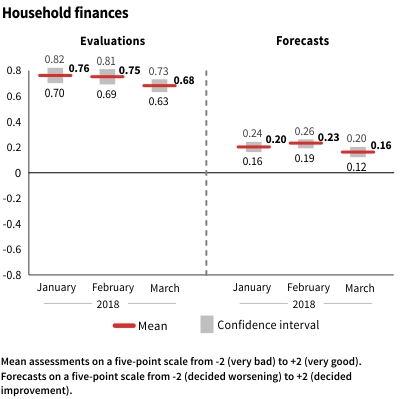
|
In the first quarter assessments and forecasts for the situation in respondents’ workplaces have been somewhat more stable and significantly better than in the analogous period of the previous year. Both are on the plus side, with evaluations much higher than forecasts. This indicates that most working people unchangingly assess the condition of the businesses that employ them positively and, on the whole, do not anticipate any meaningful change during the coming year. Should there, however, actually be one, it would most likely be positive.
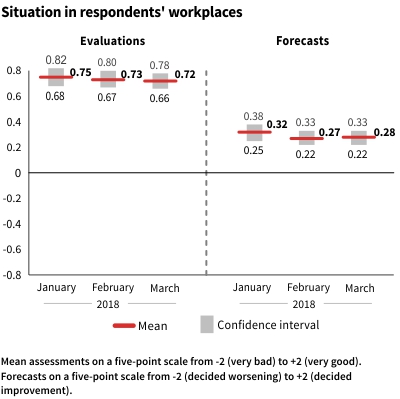
|
The above data comes from the ‘Current Events and Problems’ survey carried out during the first quarter of 2018.


